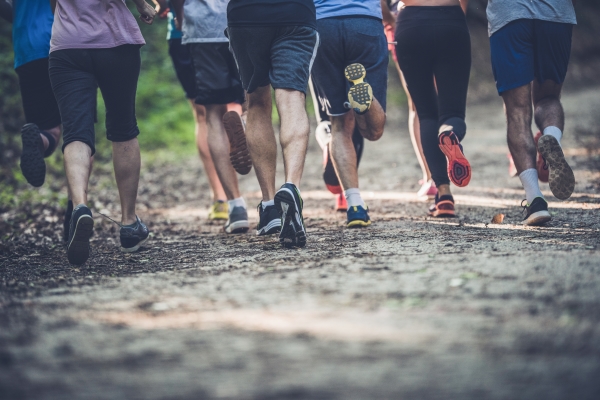Thanks to everyone who has contributed to this conversation about social experiments based on small kindnesses. There are now several ideas in this thread but I’m sure we can generate more.
I visited Karma Army and Team Nice as Laura and Ian suggested. They are both great ideas although I sense neither currently quite has the momentum to reach a tipping point. We need to create a small kindness alliance.
Maybe it’s because I am a policy wonk social scientist but I like the idea that the RSA initiative is not just about acts of kindness but about gathering evidence (albeit impressionistic) of the effect of benign behaviours on others. I wouldn’t want to vouch for the safety of Peter Mansfield’s lane blocking strategy but it would be fascinating to see whether lots of drivers copying him did start to have an aggregate impact on behaviours.
Ian Gilmour mentions PledgeBank and I too him am a great fan of the concept. PledgeBank is already doing good thing but I have always believed that it needs to grow into a network of local banks to really deliver on its potential (after all most of the concrete things we want to do together are at the local level). Maybe RSA networks can help to take Pledge Bank to this next stage (what do you think Tom?).
Back to kind social experiments; how about this as a target?
Let’s discover/generate 100 ideas.
Then I can approach the Faculty of the Royal Designers for Industry based here at RSA and ask for assistance from some of their members to design and illustrate a little book of the 100 ideas.
Then we can sell it (one of those checkout books you see in major bookshops) with the proceeds going towards a fund for civic initiatives emerging from RSA networks.
The first step is to keep the list of ideas growing – once I’ve got up to about a dozen I’ll ask the team here to design a space on the RSA site to list them and so we have a link to send around to encourage more of the same.
Ian Gilmour has already suggested this idea, and I fully agree with it. Of course, some people will see this all as very whimsical but it is a mistake to think that big change and small change are mutually exclusive aspirations. Not only can small changes tip into big changes but doing small things provides legitimacy, credibility and insight to those calling for social transformation.
Related articles
-
Building a network for place-based learning
Tom Kenyon
Tom Kenyon on the importance of sharing knowledge and good practice on place-based and ecosystemic learning.
-
Three reflections on RSA Meetups: Human connectivity and a catalyst for change
Dr Dee Gray, Alan Henry and Pam Luckock FRSAs
This blog is written as three reflections, inspired by recent on RSA regional ‘meet ups’ in north Wales. It is written by RSA Fellows Dr Dee Gray, Alan Henry and Pam Luckock.
-
How to build a social movement for the common good: key lessons from parkrun
Jack Layton
Following the award of the 2019 Albert Medal to parkrun’s founder Paul Sinton-Hewitt CBE, Jack Layton reflects on what the movement has achieved.




Join the discussion
Comments
Please login to post a comment or reply
Don't have an account? Click here to register.
I think this would count:
"Ride around town on your bike as you would normally.
If you chance upon a pedestrian standing on the street with their arm Outstretched trying to hail a cab. Reach up and Hi5 them. (It helps if you smile; palm-to-palm contact is good near misses also count)"
http://malinky.org/wikka.php?w...
Ideas, eh? Here's a resume of a few:-
1 When you are walking on a pedestrian pavement and a fully-grown cyclist wants to pass, remind him/her they're on a footpath. Most will either dismount, or return to the carriageway a few hundred yards further on. Some will, regretably, display a limited vocabulary of protest.
2 When driving towards a funnel down into fewer lanes, pull out opposite a lorry into the lane that is closing. It stops ill-mannered drivers overtaking and expecting to be let in at the last minute. There may be some road rage, but the inside lane(s) move appreciably quicker. Lorry drivers cotton on quickly and will let you back in when you need it.
3. Get to know your local litter bins, and when walking towards one pick up the biggest convenient piece of litter you pass, and bin it. People do notice, and you make a cumulative difference - as you'll see on return from a period away.
4. Harder this, because you'll need a database and some help. People use medical services much less if simple advice is available to them about common situations affecting health. That advice boosts self-confidence as well as competence, and tends to snowball into more effective parenting, more self-determination. A simple service can be based locally - e.g. residents association - and provided by a rota of volunteers, preferably experienced and successful grandparents. For a starting-point look at www.goodhealthkeeping.co.uk.
I think Ian's comment about talking to the person beside you on a train, in a doctor's waiting room is spot on. Being a native new yorker, I speak to everyone I meet, want to hear their life story, views on the world, their meaning of life, and of course am bursting to share mine. I invariably find that if you offer people an opening to meet, they will fill it and enrich your day (or waiting room experience). I am trying it in the lift in my office building and now have many new friends. I have also discovered real connections with the two Algerian servers in my local Starbucks! Try it - people want to talk and they want to be heard